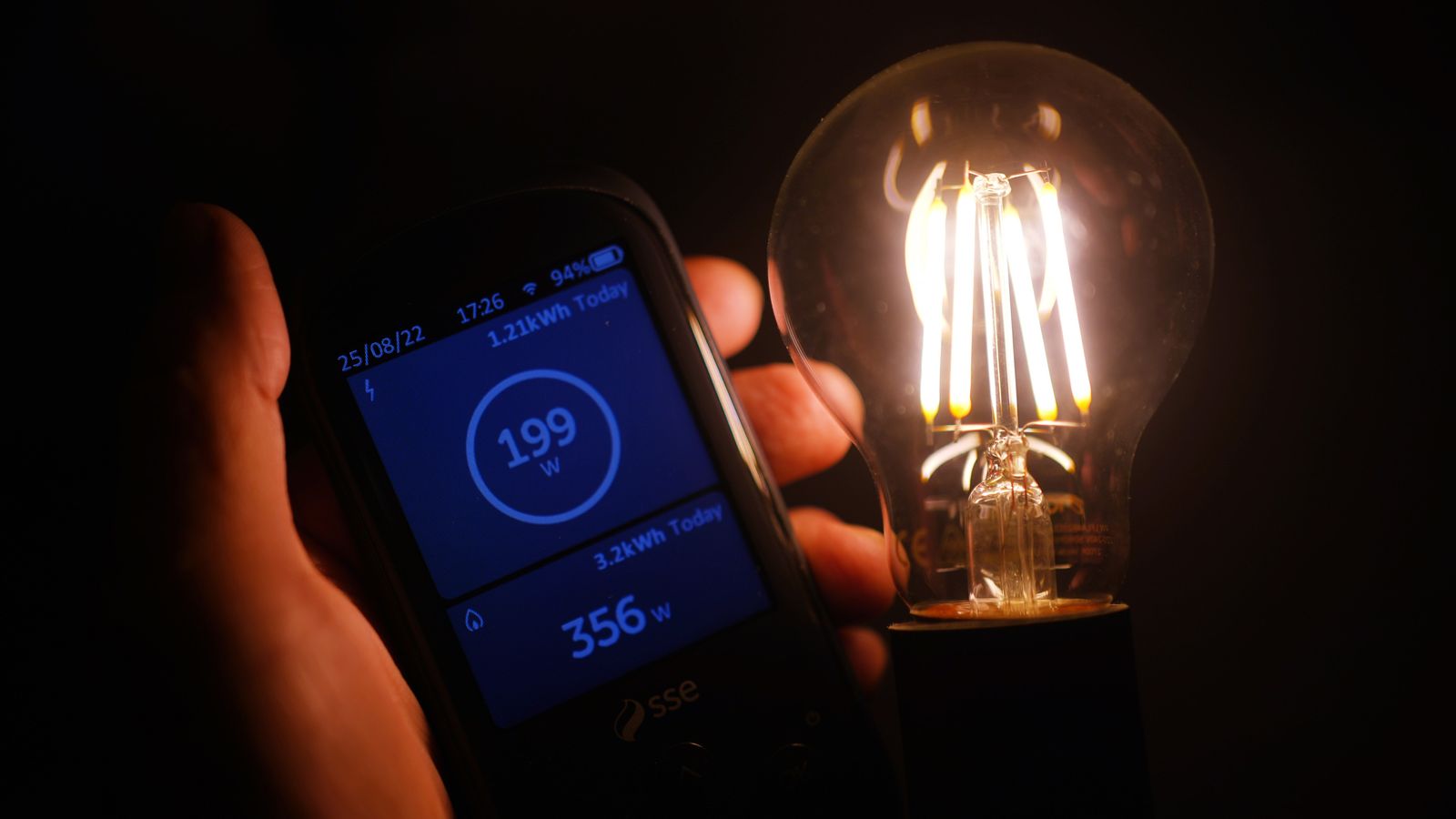The promise of up to £100 off your energy bill seems like a great deal, all for the price of turning off your lights for a few short hours.
But can sitting in the dark really save you £100?
Households are being promised savings if they cut back their electricity use during certain peak hours – with the first real run of the Demand Flexibility Service (DFS) taking place tonight and into tomorrow.
It seems like a no-brainer amid an energy crisis that has left millions struggling with their monthly payments.
Cost of living latest: Some food firms rising prices ‘unnecessarily’
This is the first time the National Grid has ordered the DFS be used – prior to that, it was just used as test runs, to see if the system could work in theory.
I’m with Octopus Energy and opted into their Saving Sessions as soon as they became available on the app. The energy provider has run five since the middle of December.
Of these, I opted into four (I forgot to click to opt into one on the 30 November) and diligently turned off the electricity as much as possible during the set time periods.
Washing machine? Off. Lights? Off. TV? Off. Heating? Off.
I even timed to be out during one of them, to guarantee I wasn’t using any electricity.
My savings so far? £2.36.
How it works
The scheme reportedly compares usage against a customer’s usual demand and pays £3 for every unit or kilowatt hour (kWh) saved.
It will help avoid the need for emergency generators to be used or blackouts to be enforced when the grid comes under pressure during peak times this winter.
It was first trialled by Octopus Energy on 1 November, with other firms following suit, but the scheme is now officially under way after successful tests last year.
So far, 26 energy suppliers have signed up, and it will stay in place until March.
Read more:
What is the Demand Flexibility Service?
Are energy bills falling?
Please use Chrome browser for a more accessible video player
Does it work for smaller households?
I only live with one other person – unless you count the two cats – which means our energy usage is already relatively low, and we struggled to cut back any further. This resulted in very minimal savings through the scheme.
We use the washing machine a few times a week (at most) and already did it during the day, and my irregular work hours mean I often cook dinner later at night after peak time has already passed.
Like us, if you already have fairly low energy usage – or use it mainly out of peak demand – you may find you can’t quite cut back to the percentage required to save money. Indeed, during two of the sessions, we didn’t save a single penny (including one time when we went weren’t in the property).
I am also reluctant to turn off any of the constantly-on appliances in my home (the fridge and freezer) because if I’m only going to be saving a few pennies, is it worth the risk of all my food going rancid?
Other customers with similarly low usage have also struggled to make savings.
“We’ve done it a few times – literally sat in the dark with some candles around us,” one tweeted Octopus Energy. “With so many homes being pretty energy efficient, it’s very difficult to make savings on electricity.”
In response, the energy company said: “If you’re already a pretty low user during the slot, you might not see a big saving.
“But every little bit counts here and everyone who contributes makes a massive difference. You can also opt out if you feel these sessions aren’t for you.”
‘It just takes a bit of planning’
However, each person’s energy use is subjective.
Karen Gibbons from Gillingham, Dorset lives with her three-year-old daughter and told Sky News she has saved £32 so far – which she cashed in on her December bill from Octopus Energy.
“I followed the tips, like if you are going to switch off your heating, heat your house up until that point, but don’t sit there being cold,” she told Sky News.
She swaps to using her washing machine during the day and makes sure not to charge her electric vehicle during the sessions.
“I think things like turning lights off doesn’t make that much of a difference – it’s making sure the appliances and heating are off.”
“My daughter is at nursery over lunchtime, so she gets a hot meal, so I don’t have to do a hot meal for her tea,” she added.
“And she likes to watch a bit of programming on her tablet so I make sure that is charged beforehand.
“It just requires a little bit of planning but it has worked out well.”
Is it worth it?
It’s never a bad idea to consider how much energy you use and try to cut back (whatever time of day) and you lose absolutely nothing from opting in.
In fact, despite my minimal savings, I would recommend anyone who can sign up for the scheme does so – every penny counts.
Households who were already using a lot of energy during peak hours (5pm to 9pm) will likely find they save more by shifting their schedules around by an hour. But for smaller households, or those with irregular hours, be aware that your rewards may be much lower than the promised £100.
Plus, the main reason behind these sessions isn’t really money – it’s reducing the UK’s energy consumption in a bid to prevent blackouts.
So I’ll continue to sign up for every session, and dutifully turn off most of the appliances in my home, at the very least to try and take some pressure off the National Grid.
And who knows – maybe this session will be the one where I save enough to make it worth it.






















